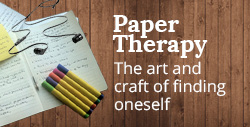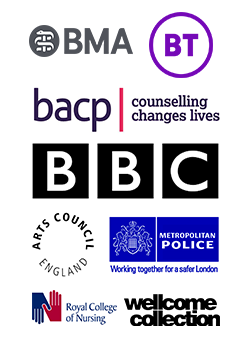What Could Have Saved Amy?

Earlier this week I attended a premier showing of the new Amy Winehouse film. I had no idea of what to expect and found the film tragic and yet a moving portrayal of Amy’s short life and the bitter sweet fame and success she did not live to enjoy. What we saw on camera was Amy in both her beauty and the ravages of inner turmoil.
The film leaves you with no doubt of Amy’s talent and gift as a singer and songwriter. But the roots of her unresolved childhood wounds leave her damaged and troubled. The issues around her mental health are eluded to have taken root in childhood with the viewer learning that she was on anti-depressants from a young age.
There is no doubt that emotionally and psychologically Amy did not get the right kind of emotional and psychological support she desperately needed as her career and fame kicked in. In Amy’s case what appears to be the root cause of the pain she carries seems to have been triggered by her father’s departure from the family as a result of an affair. She becomes a rebellious, strong willed young woman who gives her mother a hard time and goes onto to have Daddy issues throughout the rest of her life.
Amy makes poor choices with the men she has relationships with echoing signs of low self-esteem, co-dependency, unresolved issues with her father and her own deep trauma. Amy is very much the tortured but gifted artist. It is hard not to love and like this fragile, vulnerable and troubled young woman. It’s all there. The emotional fractures she carries are filled with increasing amounts of drugs and alcohol.
What becomes evident throughout the film is that Amy is not dealing with her pain she is holding it off. Watching the film I remembered something I had read where the US writer Anne Lamott http://www.salon.com/writer/anne_lamott/ gives advice to a writer who was physically abused by his mother as a child. The man is still carrying the wounds of having his hands burnt on the stove as a child by his mother. He asks Lamott how can he forgive his mother who is now a frail old woman. Lammott replies, ‘Use it she tells him.’ ‘She’s old though,’ he says, ‘Her life has not been a happy one.’
Lamott advises him to write about the experience but to change the family, change where they lived, change everything except the truth of the experience that when the little boy was naughty the mother held his hand to the flame. I can’t help but think if only Amy had been able to channel her pain differently?
It’s hard to believe that her father Mitch convinced his daughter in the early days not to go into rehab. She sings about this decision here https://www.youtube.com/watch?v=KUmZp8pR1uc Perhaps had she gone there in the early days of her growing fame we may have witnessed a different ending. I left watching the documentary feeling ambivalence about her father’s intention and how blind we can be to both our own pain and the pain of our loved ones.
I came away with deep respect and reverence for Winehouse’s song lyrics. This to me was the one place Amy attempted to begin the healing process. When signing her first record deal she tells her manager that she doesn’t write songs, she writes poems. It’s obvious that her song lyrics are deeply personal narratives charting her life experiences, the losses and the betrayals and I can’t help think if only someone had said to Amy, “Here, go on, use this journal to write it all out, the wounds, the warts and the wonders belong to the page.” Based on research that shows how keeping a journal can reduce stress, strengthen your immune system and improve moods and physical health and well-being.
Of course there might be complications for someone as famous as Winehouse keeping those words private and safe from those who surrounded her. Some of those around her may well have seized the opportunity to sell her journals to the press? And her depression may well have been too deep for words to penetrate and make a lasting impression. Who knows but nonetheless less I can’t help feel that keeping a journal would have been a good thing in the trajectory of a young life going rapidly downhill.
Young girls model themselves on artists like Winehouse and perhaps there’s still hope as recent USA market research found that 83 per cent of young women still keep a diary compared with 69 per cent in the 1990’s. The issue of mental health is a growing concern globally and here in the UK the cost of the UK society of mental health problems has been estimated at 98 million a year, greater than that of crime writes Ed Halliwell in the Be Mindful Report commissioned by the Mental Health Foundation.
I like many others ask the question whether taking drugs and alcohol halted Amy’s chances of healing? I think I know the answer. I like what Jane Fonda had to say in her Ted Talk, Life’s Third Act https://www.ted.com/talks/jane_fonda_life_s_third_act
“It’s not having experiences that make us wise, it’s reflecting on the experiences that we’ve had that make us wise. That helps us become whole, brings wisdom and authenticity. It helps us become what we might have been.”
Reading those lines and thinking about the film made me realise Amy really could have done with an older, wiser mentor who had the foresight to see into the bleakness of what she was really going through. Had she gone into rehab and committed to the difficult inner work of healing her demons she would have had a sponsor and counsellors who would have been on her side. There was a huge sense that this was a young girl left to cope emotionally on her own.
But when it comes to what would have helped Amy the answers are more complex and debatable. Perhaps the words of Graham Greene offer further food for thought who said, “Writing is a form of therapy. Sometimes I wonder how all those who do not write, compose or paint can manage to escape the madness, the melancholia, the panic and fear which is inherent in human condition.”
After all Amy Winehouse is not the first famous artist to suffer at the ravages of mental health, alcohol and drugs, think Jimmy Hendrix and Janis Joplin who were both the same age as Winehouse when they died. Her death was a tragedy and perhaps despite the complexity of mental health her life could have been saved for many more years to come.
The tag line for my work around journaling and therapeutic writing goes like this, Writing Changes Lives and Lives Are Changed By Writing. I know from personal experience that journaling has helped saved me big time from giving into the clutches of depression on a deeper scale. Whilst it has not saved me outright it has been a personal therapeutic activity I can use on a regular basis to self regulate my emotions and feelings.
If you have things on your mind or are finding life difficult to cope with reach out to many of the mental health organisations that exist in every area, speak to your doctor or a trusted family member or friend. And if your mental health issue is not too debilitating try keeping a journal.
You can download my free Journal Journey guidebook when you sign up on our free resources page on the website http://www.jackeeholder.com/sign-up/ It includes over seventy journal prompts and suggestions for what to write about in your journal. If you know someone experiencing mental health issues please feel free to share the free guide with them.
I’ll leave you with these final words from author and writer Laraine Herring from her book, Writing Begins With The Breath, “The writing outlasts jobs, partners and pets. The writing itself is the continuum of our lives.” http://laraineherring.com/writing-begins-with-the-breath/
Click here to watch Amy singing the haunting song, Love is a losing game https://www.youtube.com/watch?v=nMO5Ko_77Hk






Leave a Reply
By submitting a comment here you grant Jackee Holder a perpetual license to reproduce your words and name/web site in attribution. Inappropriate or irrelevant comments will be removed at an admin's discretion.